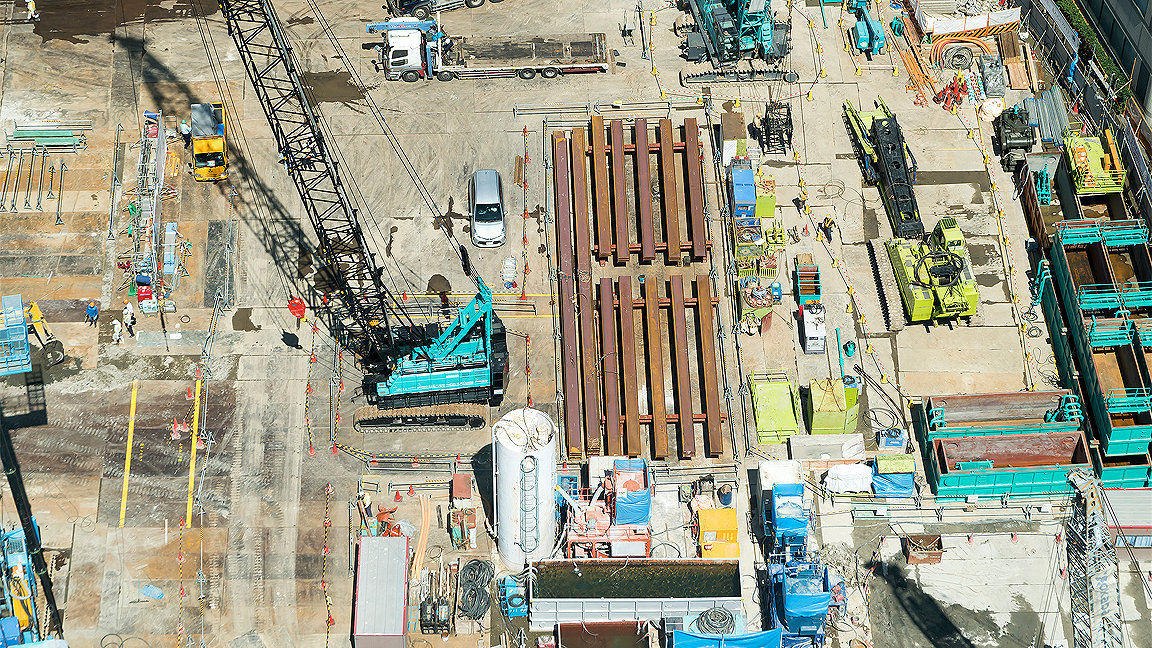
The state of the UK and global economy has been much in the news this year – and this has exacerbated a number of long-standing problems in the construction industry.
Throughout the year, Construction Journal has regularly analysed issues affecting the sector such as insolvency, letters of intent, productivity and the workforce. Among our coverage, we have published the following articles.
Dealing with increased insolvency risk
Several years of hyperinflation in construction materials, combined with high consumer inflation and successive interest rate hikes, made 2023 very difficult for businesses globally.
As a result, the construction industry has experienced the highest number of insolvencies of all industries in the UK for the past two years.
In a January article, Rowan Duffin-Jones of the Insolvency Practitioners Association identified signs of contractor insolvency to look out for, as well as the questions quantity surveyors or project managers should ask themselves while working on a project to prevent them or their clients being caught out.
Being aware of a contractor's financial position through credit checks and fully understanding contractual rights at the outset is essential in the event of insolvency.
Thorough and accurate documentation of events, transactions and communications can also help avoid problems and maintain clarity between parties, Duffin-Jones explained.
'Many of the early warning signs are qualitative, and rely on being aware of what is happening in the market'
Construction Awards
The RICS UK Awards are free to enter, and recognise outstanding achievement, teamwork, and companies in Construction.
As part of our ongoing commitment to raise the profile of industry professionals and teams, the Awards aim to demonstrate the positive impact that the built environment has on individuals and communities, while also promoting the role that the profession has in making projects a reality.
Special category awards
- Environmental Impact award category recognises projects where innovation, design or construction techniques have been utilised to address environmental challenges and improve sustainability.
- Infrastructure award category celebrates the delivery of exceptional infrastructure projects. This will include basic structures, systems, and services required for operation.

Caution advised when writing letters of intent
Given the current economic conditions, clients and contractors may be overeager to begin work as soon as possible – prompting the use of letters of intent before completion of a contract.
However, such letters should be used with caution. Writing for the journal in June, Claire King of law firm Fenwick Elliott noted that 'letter of intent' is not a defined term and is therefore open to interpretation and – more importantly – miscommunication.
The letter does not guarantee that a contract has been entered into, which would depend on further communications and the actions of the parties involved.
Furthermore, although it is possible to finalise a contract after a letter of intent and work has commenced, the letter itself can make it more difficult to assess the risks each party is exposed to.
In her article, King dealt with a number of cases where a letter of intent written before a contract was finalised led to difficult and protracted litigation.
'Before agreeing to a letter of intent, both parties should stop to ask themselves why they cannot yet enter into a full contract'
Productivity issue coming to a head
Another economic issue that remains a continuing problem for construction as a whole is low productivity, with the industry lagging well behind other sectors.
In October, Construction Journal asked three experts for their opinions on how to improve this aspect of the business.
Anthony Hynes of Chancerygate emphasised the impact that chronic labour shortages have had, causing on-site delays and increasing project time frames. It has been known for some time that the construction workforce is an ageing population and those leaving are not being replaced in the numbers needed.
Meanwhile, Holly Davis of KPMG noted that the industry needs a rebrand to present jobs in an exciting way to digitally literate young people leaving school, as well as promoting new and emerging technologies and modern methods of construction (MMC) to support both employment and sustainability.
Turner & Townsend's Chris Sargent echoed this point, arguing that wholesale adoption of MMC would represent a significant productivity boost, as well as providing a host of other improvements including faster completion of projects, reduced costs and economies of scale.
'We cannot expect significant shifts in productivity so long as construction technology remains fundamentally the same as it was in the 1990s'
Striking a more positive note, the second part of our round-up of the year will focus on how the industry is integrating and prioritising sustainability in its work.
Brian Ward is the editor of Construction Journal
Contact Brian: Email
